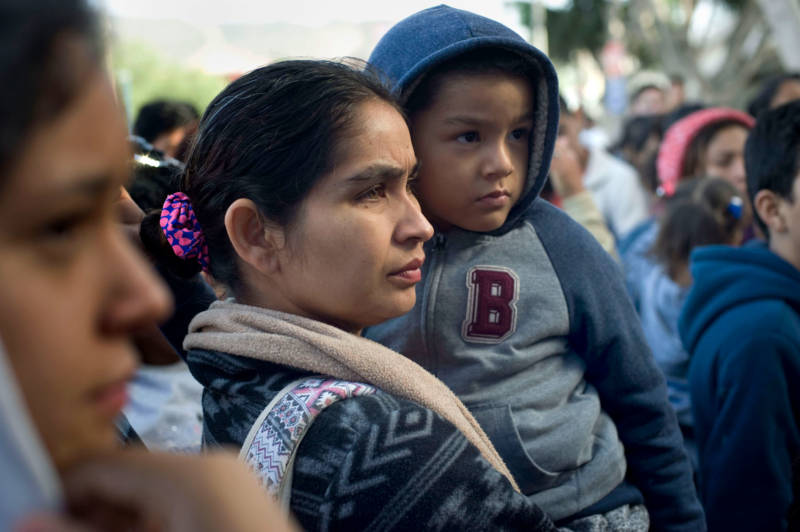A federal appeals court in San Francisco is considering whether thousands of asylum-seekers can be locked up for months or years, or whether they have a constitutional right to ask a judge for their release on bond.
A three-judge panel of the 9th U.S. Circuit Court of Appeals heard arguments Tuesday in a lawsuit challenging a Trump administration order that aims to detain asylum-seekers who enter the country without proper inspection until their cases are decided, a process that can take up to several years.
Just moments after Justice Department attorney Lauren Bingham began addressing the court, Judge Michael Hawkins cut her off with what would become a recurring question throughout the hearing.
“Are the people in the plaintiffs class subject to indefinite detention with no promise of a bond hearing? Yes or no?” asked Hawkins, a Clinton appointee.
Detention would not be indefinite, Bingham responded, because it would last only until an immigration judge decides if the government can deport that individual.
Bingham said immigrants who entered the country illegally — and passed initial interviews establishing a “credible fear” of persecution or torture — are entitled only to rights expressly given to them by Congress.
“There is a sliding scale of due process,” she said. “And the Supreme Court has said on multiple occasions that due process is a flexible concept that takes into account all of the different varying circumstances.”

